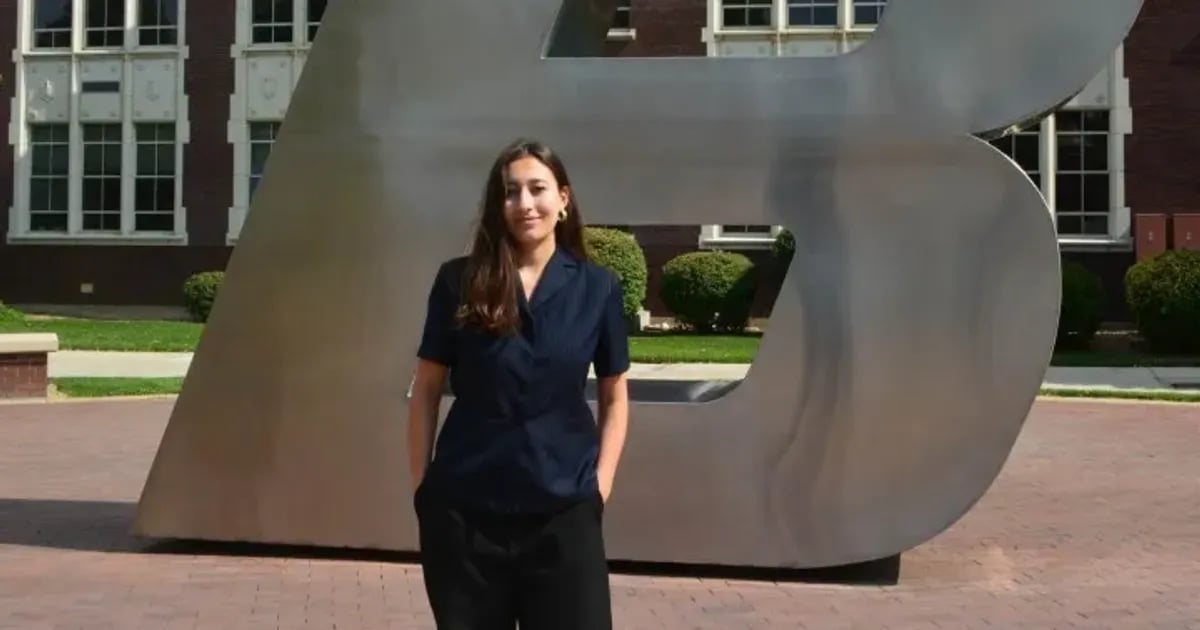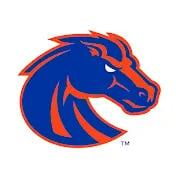Mon parcours
Je m'appelle Anna. Je suis originaire d'Erevan, en Arménie, où j'ai fréquenté le lycée Manuel Kajuni n°54. Ensuite, j'ai poursuivi mes études de licence en Informatique et Mathématiques Appliquées. Pendant mes années de premier cycle, je me suis de plus en plus intéressée au pouvoir du travail d'équipe et de la collaboration interculturelle, et j'ai compris qu'élargir mon expérience académique au-delà de l'Arménie pourrait ouvrir de nouvelles portes, tant sur le plan intellectuel que personnel.
Pourquoi j'ai choisi d'étudier à l'étranger ?
Plusieurs raisons clés m'ont conduite sur cette voie. Tout d'abord, je voulais acquérir une expérience internationale et travailler avec des personnes de différents horizons. J'avais déjà constaté à quel point les projets d'équipe pouvaient être plus solides et créatifs lorsqu'ils étaient façonnés par des perspectives diverses. Ensuite, je souhaitais approfondir un domaine spécifique, en particulier l'intelligence artificielle et le machine learning. Enfin, je recherchais le défi de vivre seule dans un nouveau pays. Je voulais connaître la croissance personnelle qui accompagne le fait de sortir de sa zone de confort.

Pourquoi Boise State ?
J'ai passé beaucoup de temps à rechercher des universités aux États-Unis et à examiner des programmes qui correspondaient à mes intérêts. Je ne connaissais personnellement personne à Boise State University, mais quand j'ai regardé leur programme d'informatique et leur approche de la recherche en IA, quelque chose a fait tilt. J'ai aimé la flexibilité du programme et l'atmosphère accueillante du campus.
Statistiques
Lorsque j'ai décidé de poursuivre mes études supérieures aux États-Unis, j'étais consciente que les résultats académiques et les scores aux tests standardisés joueraient un rôle important dans le processus d'admission.
Moyenne universitaire : J'ai obtenu ma licence en Informatique et Mathématiques Appliquées avec une moyenne de 17 sur 20
TOEFL : Pour démontrer mon niveau d'anglais, j'ai passé le TOEFL iBT et obtenu un score de 101 sur 120. Ce score était supérieur au minimum requis de 80 pour l'Université de Boise State.
GRE : J'ai postulé sans soumettre de score (option test-optional).

Essais et recommandations
La rédaction d'une déclaration personnelle convaincante était une priorité pour moi. J'ai consacré beaucoup de temps à rechercher des stratégies d'écriture efficaces, comprenant que cet essai était l'occasion d'exprimer ma passion pour l'informatique et mes aspirations dans le domaine de l'intelligence artificielle. J'ai sollicité les commentaires de mes pairs et de mes mentors, révisant plusieurs versions pour assurer clarté et impact. La version finale mettait en avant mon parcours académique, mes intérêts de recherche et les raisons pour lesquelles j'ai choisi l'Université d'État de Boise.
Obtenir de solides lettres de recommandation était un autre aspect crucial. J'ai approché mon directeur de thèse de premier cycle et un autre membre du corps enseignant qui connaissaient bien mon travail académique et pouvaient attester de mes capacités et de ma préparation aux études supérieures. J'ai également compilé un CV détaillé qui englobait mon parcours éducatif, mes stages, ma participation à des bootcamps de codage, des hackathons et mes expériences de bénévolat.
Activités extrascolaires + Expérience professionnelle
Pendant mes études de premier cycle, j'ai essayé de m'impliquer autant que possible. J'ai participé à des stages, des hackathons, des écoles de codage social et technique, et j'étais également membre du Competitive College Club d'EducationUSA. Faire partie du CCC m'a beaucoup aidée — cela m'a donné plus de clarté sur le processus de candidature et m'a aidée à comprendre comment me préparer pour étudier aux États-Unis.
J'ai fait des stages dans des endroits comme ACA (Armenian Code Academy) et j'ai également étudié à 42 Yerevan, ce qui a été une expérience importante pour moi. J'ai participé à des hackathons organisés par Digitech et M1TQ, qui m'ont aidée à améliorer mon travail d'équipe et mes compétences en codage sous pression.
J'ai également fait du bénévolat, par exemple chez Starmus. Toutes ces activités m'ont non seulement aidée à grandir académiquement et professionnellement, mais m'ont aussi permis d'explorer différents domaines et de rencontrer des personnes inspirantes.

Assistanat de recherche
Financer mes études aux États-Unis était l'un des plus grands défis. Heureusement, j'ai obtenu un poste d'assistante de recherche à Boise State, ce qui m'a permis d'étudier ici. Ce soutien a tout changé : il m'a donné la liberté de me concentrer sur mes études et mon développement personnel, sans le stress constant de l'insécurité financière.
La vie étudiante à Boise State
Vivre à Boise s'est avéré encore mieux que ce que j'imaginais. C'est une ville petite et sûre, ce qui est un grand avantage pour les étudiants internationaux comme moi qui découvrent un nouvel environnement. Tout est proche, ce qui facilite la vie quotidienne.
Il y a une multitude de clubs et d'événements étudiants - que vous soyez passionné de danse, de sport ou d'IA, vous trouverez votre communauté ici. J'ai rejoint le club de danse et je joue occasionnellement au volleyball. J'ai aussi essayé le tennis une fois, mais j'ai été un peu intimidée (je réfléchis encore à y retourner le semestre prochain !). J'assiste régulièrement aux matchs de basket et je participe à un club d'IA qui organise des événements et des discussions. C'est un environnement tellement encourageant, tant sur le plan social qu'académique.

Projets d'avenir
En ce moment, je suis à la croisée des chemins. Il me reste encore un an dans mon programme de master, et j'hésite toujours entre poursuivre un doctorat ou me lancer directement dans l'industrie. Cet été, je prévois d'approfondir ma recherche pour voir s'il y a un domaine spécifique que je souhaite explorer davantage.
Que je poursuive mes études ou que je commence ma carrière professionnelle, j'espère pouvoir mettre à profit mes compétences et mon expérience en Arménie. J'ai déjà participé à des programmes de startups auparavant, et j'aimerais contribuer à l'écosystème technologique de mon pays, peut-être en lançant ou en soutenant une entreprise axée sur l'IA.
Conseils pour les candidats internationaux
Si vous pensez même à étudier à l'étranger, mon plus grand conseil est celui-ci : lancez-vous. Si le désir est là, vous trouverez les ressources. N'attendez pas que tout soit "parfait". Commencez simplement. Connectez-vous avec des gens. Posez des questions. Apprenez des parcours des autres. Être loin de chez soi et s'aventurer dans l'inconnu vous mettra au défi, mais cela vous façonnera aussi d'une manière que vous ne pouvez pas encore imaginer.
Pour le processus de candidature lui-même, commencez tôt. Même si je me le suis dit, j'ai quand même fini par avoir quelques moments de dernière minute. La préparation aux tests, la construction de votre profil et la recherche d'universités prennent du temps. Les universités américaines examinent les candidatures de manière holistique, donc chaque expérience compte. Impliquez-vous. Faites du bénévolat. Apprenez. Ensuite, lorsque vous écrivez votre histoire, ne cachez pas vos lacunes ou vos faiblesses. Montrez comment vous avez grandi grâce à elles. Faites de votre candidature un récit de progrès et de curiosité, pas de perfection.
Plus important encore, croyez que votre histoire compte - parce que c'est le cas.



